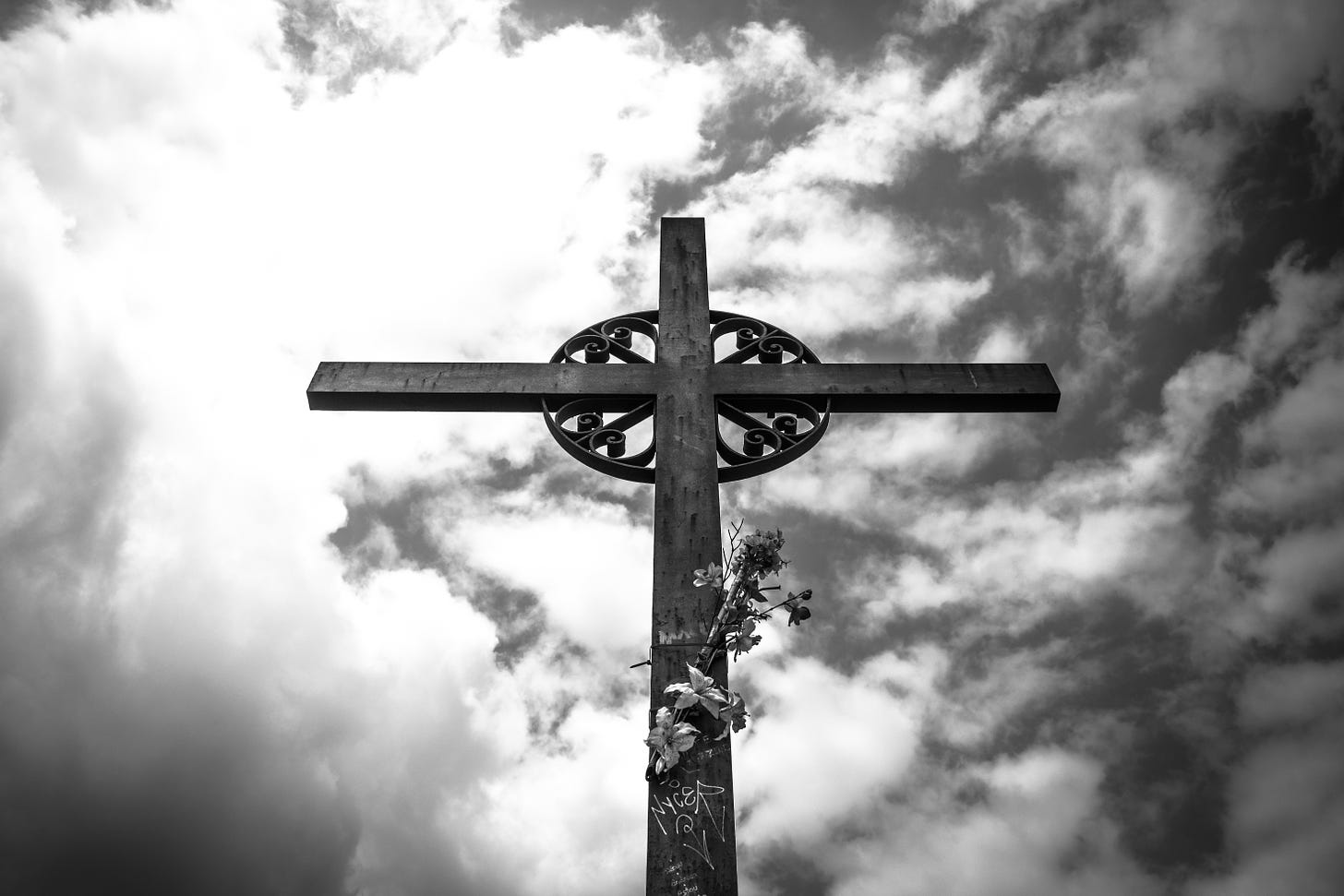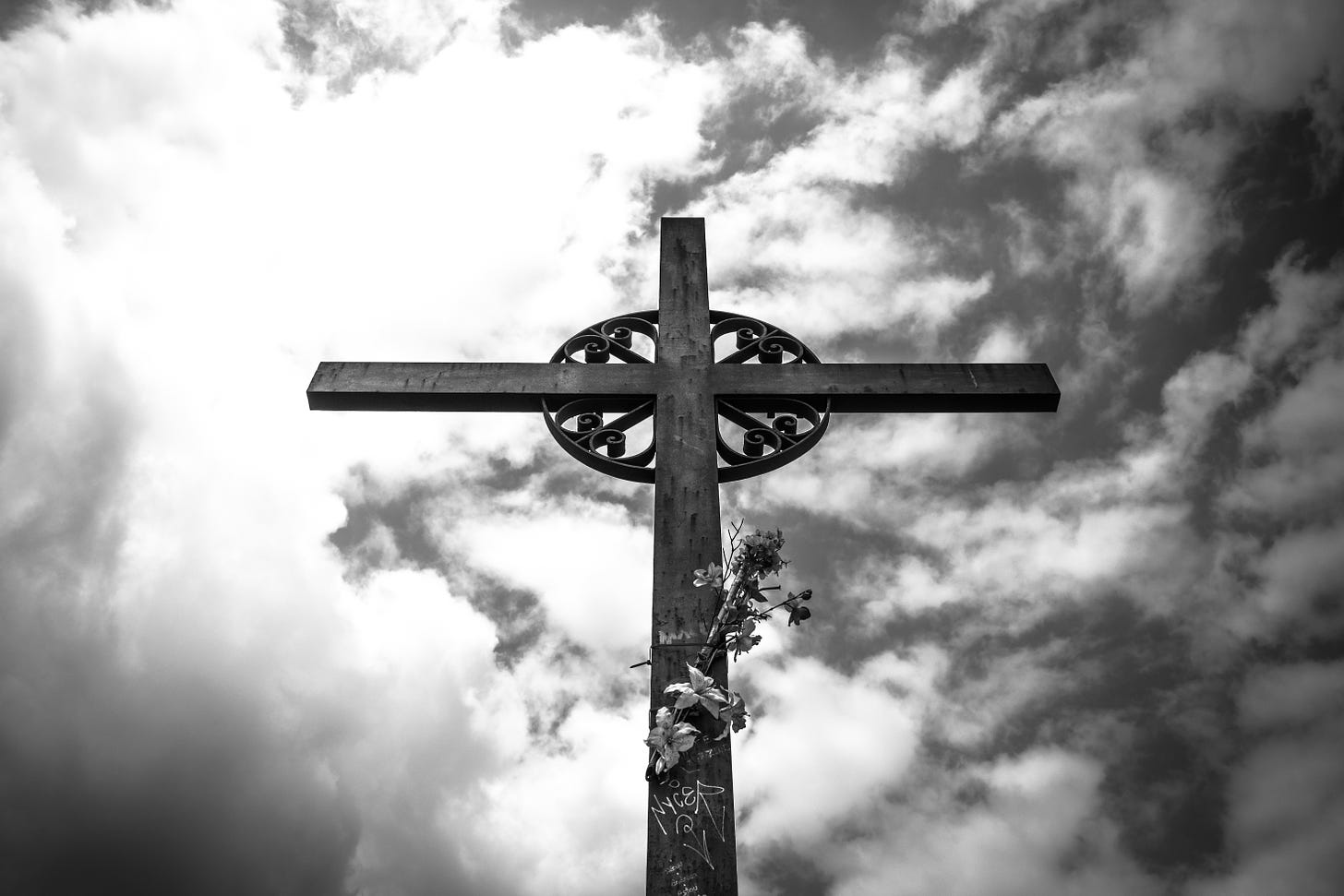Lectionary Readings:
Deuteronomy 6.1-9
Psalm 119.1-8
Hebrews 9.11-14
Mark 12.28-34
I want to be loved.
It is my deepest desire, and my deepest fear is that I won’t be loved. I have what’s called an anxious attachment style. This means that in my relationships (especially with my wife), I am always looking for reassurance that I am wanted, accepted, loved. I’m not secure when people tell me they love me; I fear that they will take away their love if they find out how awful I am or if I don’t live up to their standard.
While I seek to give unmerited, unconditional love, I don’t believe it’s for me.
So, I try harder. I need to do better, do more. My actions are proof that I am worthy of being loved. At least, that’s what my anxious attachment style tells me. If I can get it right, then those I seek love from won’t leave.
Doing more isn’t always a bad thing. Take my relationship with my wife, for example. There are areas I need to work on, like making sure to do what I say I’ll do quickly, not putting it off or letting other things get in the way. It’s a good thing, something that is growth for me. It’s a relational action. Yet, this feeling of worthlessness and fear that she will leave when I don’t meet those expectations pervades.
Some of us take this attitude when it comes to God. We feel that if we can do enough, do it right, do more of the right stuff, then God will for sure love us and not leave us. We flip the bible into a rule book; listing do’s and don’t for us to follow and walk blamelessly so that God will love us.
It’s complicated because our relationship to God is reflected in our actions but not based on them.
The Torah, for a first-century Jew at least, was a relational tool between God and humanity. The blameless person was one that walked in the Lord’s instructions – keeping the Torah. The people of Israel were commanded by God and urged by Moses to keep the whole of the instruction in the law so that they would prosper. It’s not that God was saying, “Do X, and I’ll make you rich.” Rather, God was saying this is the way to live in order to thrive.
With 613 commands in the Torah, there is a lot to do. So, teachers, scribes, and lawyers of the Torah took to asking each other questions about these commands in order to understand and keep the way of God. One of the questions that were asked was, “What is the first, the most important, command in the Torah.”
It’s no surprise that Jesus got asked this question. In Jerusalem – indeed, throughout his public ministry – Jesus proved himself a worthy opponent in these question sessions. Some Pharisees, some Sadducees, some scribes, some lawyers – all these people came questioning Jesus, trying to trip him up, catch him in blasphemy, prove he was unfit to be a teacher of the law.
Jesus answered them all. He answered them well. He left people asking better questions, seeing God in new ways, rethinking what the Torah meant.
Here comes an unnamed scribe, and upon hearing Jesus answers them well, he poses this classic question. “Which commandment is the first, the most important?”
Jesus answers with a prayer. “Hear, Israel, the Lord our God, the Lord is one.” This is known as the Shema, a prayer acknowledging the fundamental truth of who this God Israel worshiped is. Jesus then goes on to quote the rest of the instruction, sort of saying, “Because the Shema is true… love your God with all your heart and with all your being and with all your might.”
There it was.
The greatest instruction. The greatest relational action anyone could do to relate to God. If you were anxious about God loving you, here was the one thing you should do first, where you should start: Love God with everything you have and everything you are.
Jesus (in great Jesus fashion) then goes on and asserts the second command as well, “You shall love your neighbor as yourself.”
That was it. Because the Lord is one, love God, and the way you do that? Love your neighbor. Jesus took the entire Torah and summed it up, encapsulated the breath of the law, and laid the responsibility of each other squarely on our shoulders as the way we are to love God.
The scribe tells Jesus, “Yes. You get it. This is much more important than all the burnt offerings and sacrifices.”
We do religious activity because we want to relate to God, reach out to God, know God is there. For those of us with anxiety about God’s love, we use these religious rituals to comfort us, to remind us that God loves us, and sometimes (unhealthy) try and manipulate God into loving us.
Israel had rituals as well. Animal sacrifices and burnt offerings were part of these rituals, the pinnacle of worshiping God. Keeping the sacrifices was vitally important to keeping a right relationship with God. Any faithful Jew would keep doing the sacrifices and burnt offerings – as per the instruction of God in the Torah – to stay blameless in God’s sight. From tithing to atonement to thanksgiving, these sacrifices and burnt offerings were so important.
But some things are much more important than keeping the rituals that kept you faithful and clean.
Out of all the rituals, the commands, the laws, Jesus says the greatest is to love God with everything you have—everything you are – and love your neighbor as yourself. These are the much more important things; these are the things that matter most of all. When the scribe agrees, Jesus tells him that he is close to the kingdom of God. This should cause us to sit up and pay attention.
More than liturgy, more than baptism, more than even Eucharist, loving God and loving other people sit at the pinnacle of what is most important to God. The best way we have to relate to God is to love God and love our neighbor.
What about those of us plagued with anxious worry about God’s love for us? What about those of us with anxious attachment styles who have a hard time trusting that others can, will, want to love us? There is an answer, and it’s not about proving ourselves worthy or doing enough to make someone else happy.
The core is love. More than an emotion, love is a choice, a choice to care for someone else and to act on that care. See, we have a chance to give people what we so desperately crave, love and assurance of worth. Since God is one, we should worship God with all we are by loving our neighbor. It starts with the person right in front of you. Your neighbor is where love starts. You love God with everything you have by loving that person right in front of your face, even if you don’t feel loved yourself.
Now, don’t misunderstand there are situations of abuse and oppression where the “as yourself” part of “love your neighbor as yourself” has to come first. No one is required to stay in a dangerous situation. In fact, those of us on the outside can and should love people in abusive situations by helping them get away and out when we can. Sometimes that involves police and courts. Other times, it’s giving someone a place to live while they get on their feet. Sometimes it’s the encouragement to leave emotionally abusive relationships. Whatever it is, we love people towards security, safety, and wholeness.
Loving is hard. Loving is a long process, not a fuzzy, warm moment of bliss. We are called to love God by loving others because this is what Jesus did with his life, with us. Loving the law of God, God’s instruction and commands so that we may live a righteous life comes down to our relationships with other people.
More than church, worship, study, even Eucharist – loving God by loving our neighbor is much more important than any of these things. In fact, it will put all the rest of a holy life into perspective and place.
Give people what you desperately crave: unconditional love. In this way, you love God in a much more important way than any burnt offering or sacrifice could ever accomplish.




